Card Shark
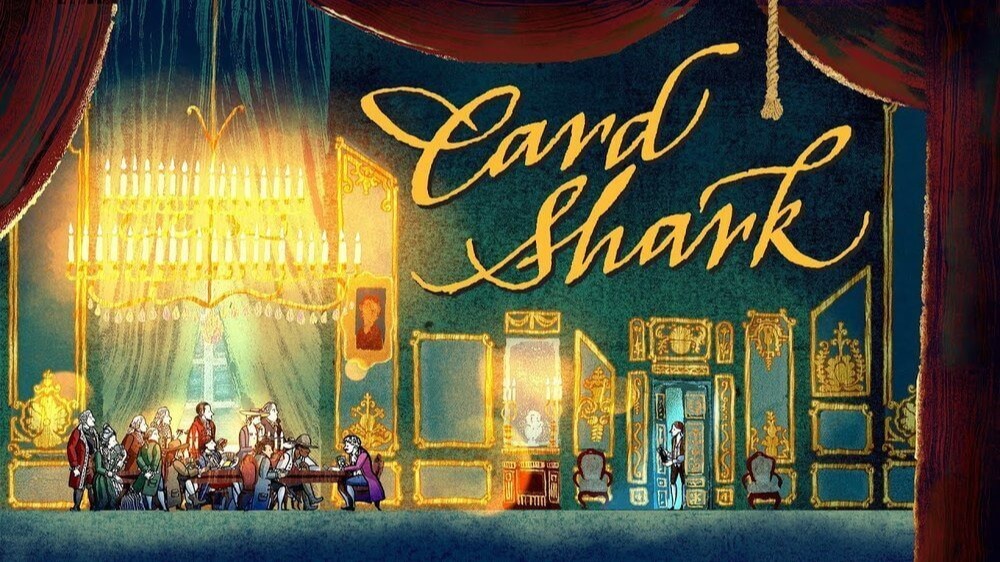
Card Shark - Almost...
The publisher at Devolver Digital is a red rag for a bull addicted to indie games. We owe them for the legendary Hotline Miami, the curious Inscription, whose plot explodes the brain, for the unobtrusive Death's Door metroid, and now Card Shark - the only game in its genre, a simulation of a card cheat - should also be included in the list of publishers.
Monsieur, pass me my croissant, Merci!
Card Shark takes a high narrative bar from the first minutes and refers to the real historical era, cleverly playing with famous personalities of France of the mid-18th century. A truly bookish exposition of the game tells the story of the main character's acquaintance with the Count of Saint-Germain, a highly odious personality of the late Baroque era. There is not much reliable historical information about the life of Count Saint-Germain, and the year of the events of the game - 1743 - is completely covered by a veil of mystery. Saint-Germain was attributed a lot of bizarre deeds, but only known for certain that he was engaged in espionage, spoke eight languages, had extensive knowledge of chemistry and history, and was personally known to Louis XV. Well, the most outstanding achievement of Saint-Germain was that 238 years after his death, he became the protagonist of the subject of our present review - the game Card Shark.
Apart from joking, the plot of Card Shark tells the story of how one unsightly day St. Germain stopped by an estate and witnessed the disrespectful attitude of a mistress toward her servant. Saint-Germain felt sympathy for the destitute commoner and offered to participate in some adventure, promising good earnings. The servant could not verbally respond to Saint-Germain's proposal, since he was mute, but he confirmed the meaning of the proverb: "Silence is a sign of agreement.
The author of the game - Nikolai Troshinsky - took an extremely responsible approach to the entourage of his work, "organized" a meeting with Voltaire, Casanova, Louis XV and someone else, whose names will obviously resonate with those who are at least a little bit interested in history. In addition, Nicholas has left some quite non-obvious references, so to speak, not for everyone. For example, when introduced to the mute protagonist of the game, Saint-Germain notes that mute people have the gift of foresight...in his lifetime, Saint-Germain was also credited with the gift of clairvoyance. This is the kind of trivia that 99.9% of players won't pay attention to, and it's far from certain that Nicholas intended this line of text as a reference, but if so, I take off my imaginary hat to Monsieur Troshinsky. But how did Monsieur Troshinsky handle the fun part of the game?
You will not deceive - you will not live
St. Germain's proposal was that the mute servant become his assistant. In order to lead Saint-Germain to his desired goal, the player would have to gradually learn 28 cheat tricks. There is no semantic error in the previous sentence. It is the player, not the protagonist, who has to learn the cheat tricks.
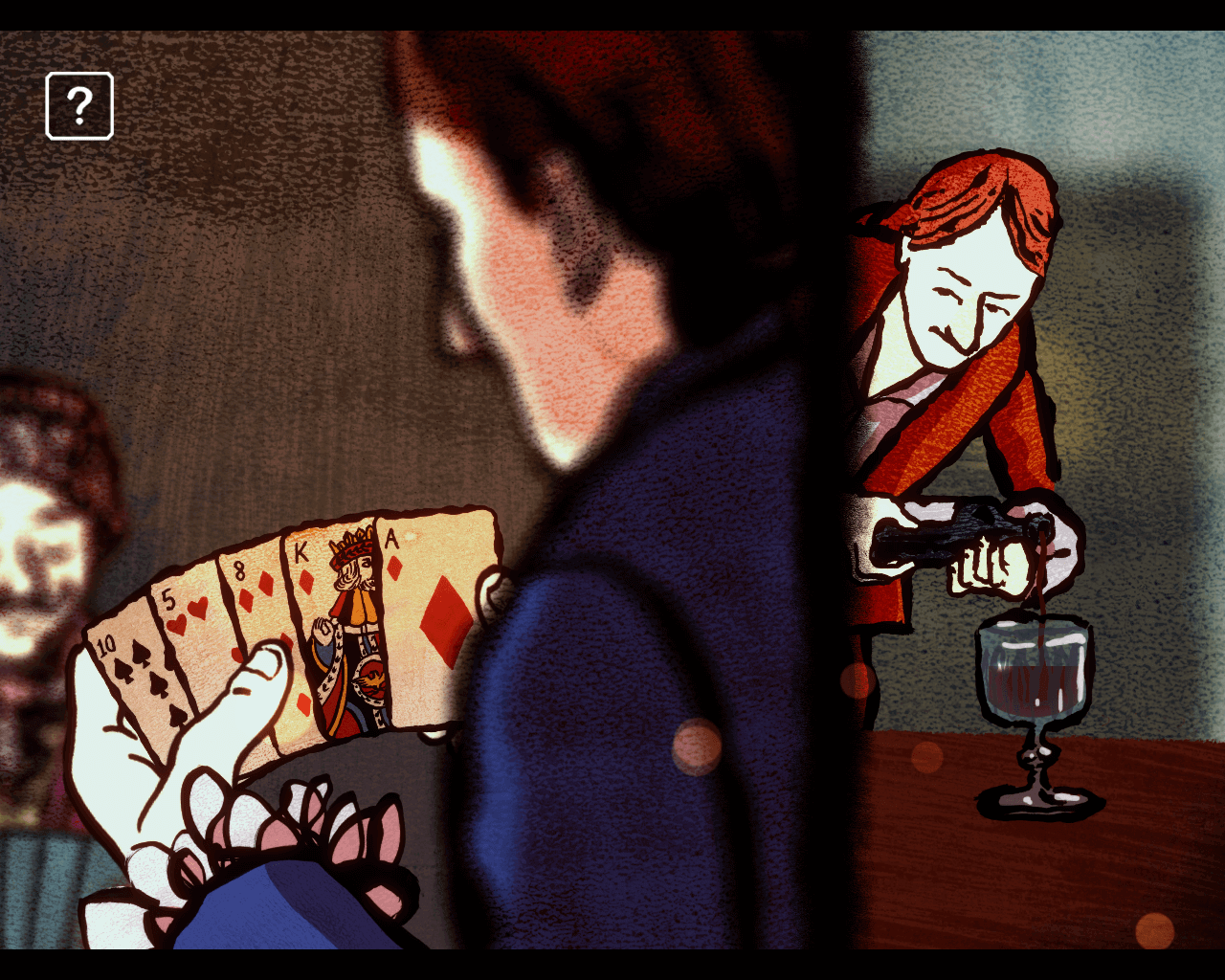
The explanation of tricks sounds much simpler than their application. In words it's simple: you see the highest suit and give the signal to the cheat. In fact, from the very beginning the player will almost certainly have difficulties: not only do you have to spy the cards, but also determine the highest suit in a matter of seconds. At the beginning of the game this task is easy, but in the screenshot above the dominance of diamonds is obvious...
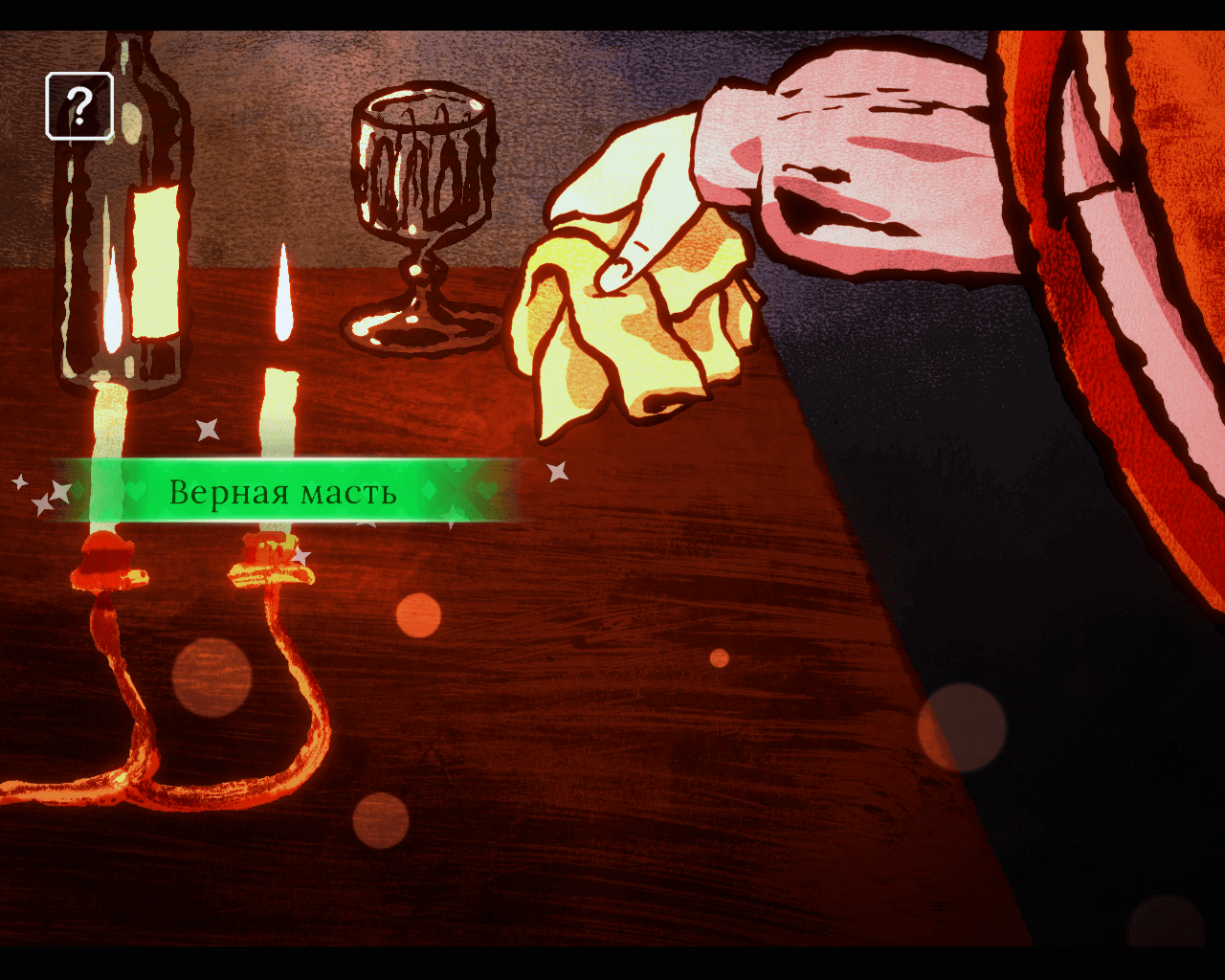
...but already the second assignment begins to gradually confuse him. Nikolai Troshinsky knows how to cheat, everything presented in the game he has mastered in real life. Unfortunately, to understand does not mean to be able to teach. Learning card tricks in Card Shark is supposed to be simple, but in fact in games over time there are more and more variables to keep in mind: how to correctly shuffle the deck, how to organize a "false deal," how to mark the shirt of the cards, etc.
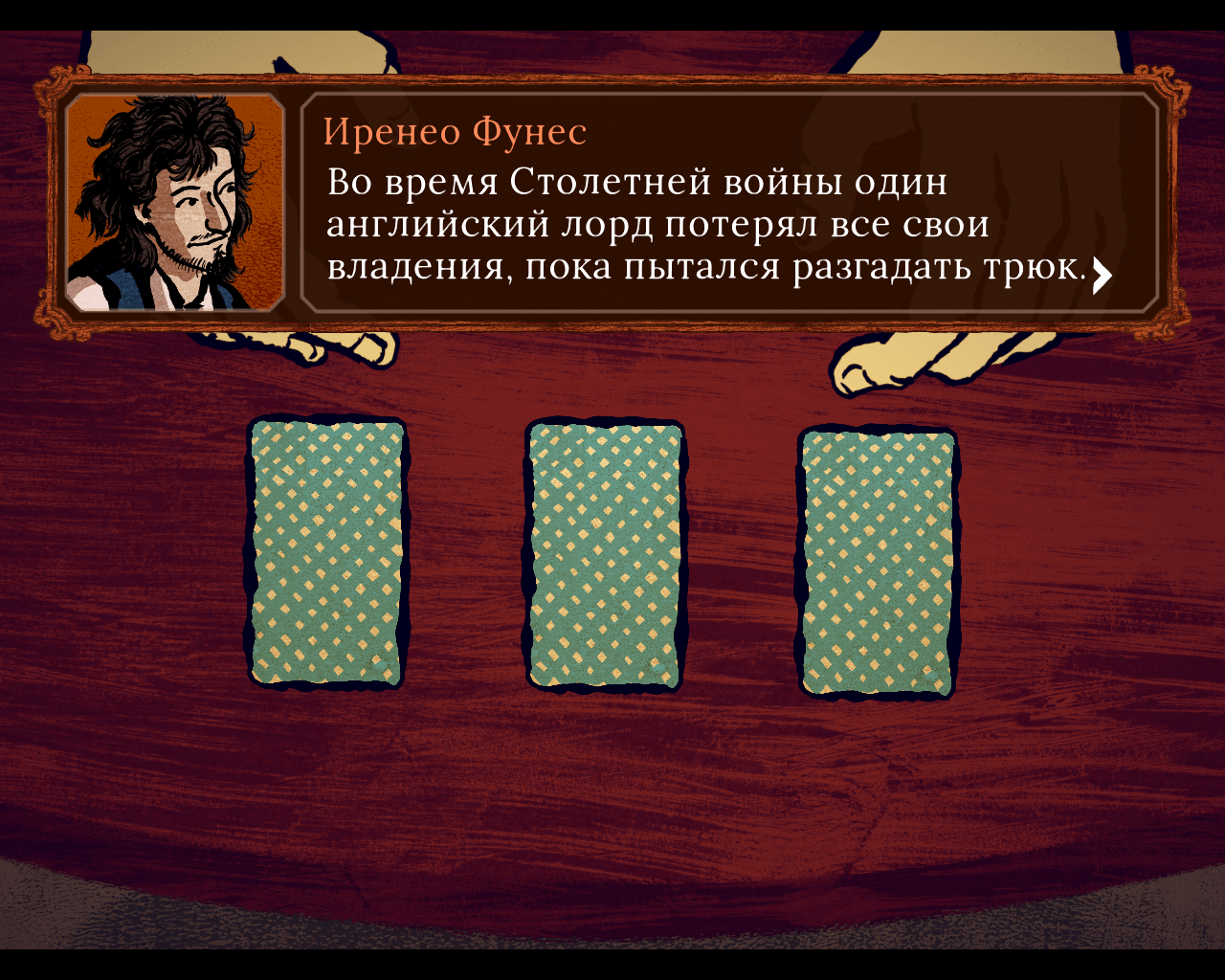
The hints in the game work on the principle of "I'll remind you what you have to do, but I won't remind you how. Card Shark is by no means a game for unobtrusive leisure. Each level will test not only your reactions, but also your memory and logical thinking. Get into the game and have fun will turn out only after a couple of hours, you have to overcome not the lowest entry threshold. But as soon as you master the art of cheating, the game will generously repay your efforts.
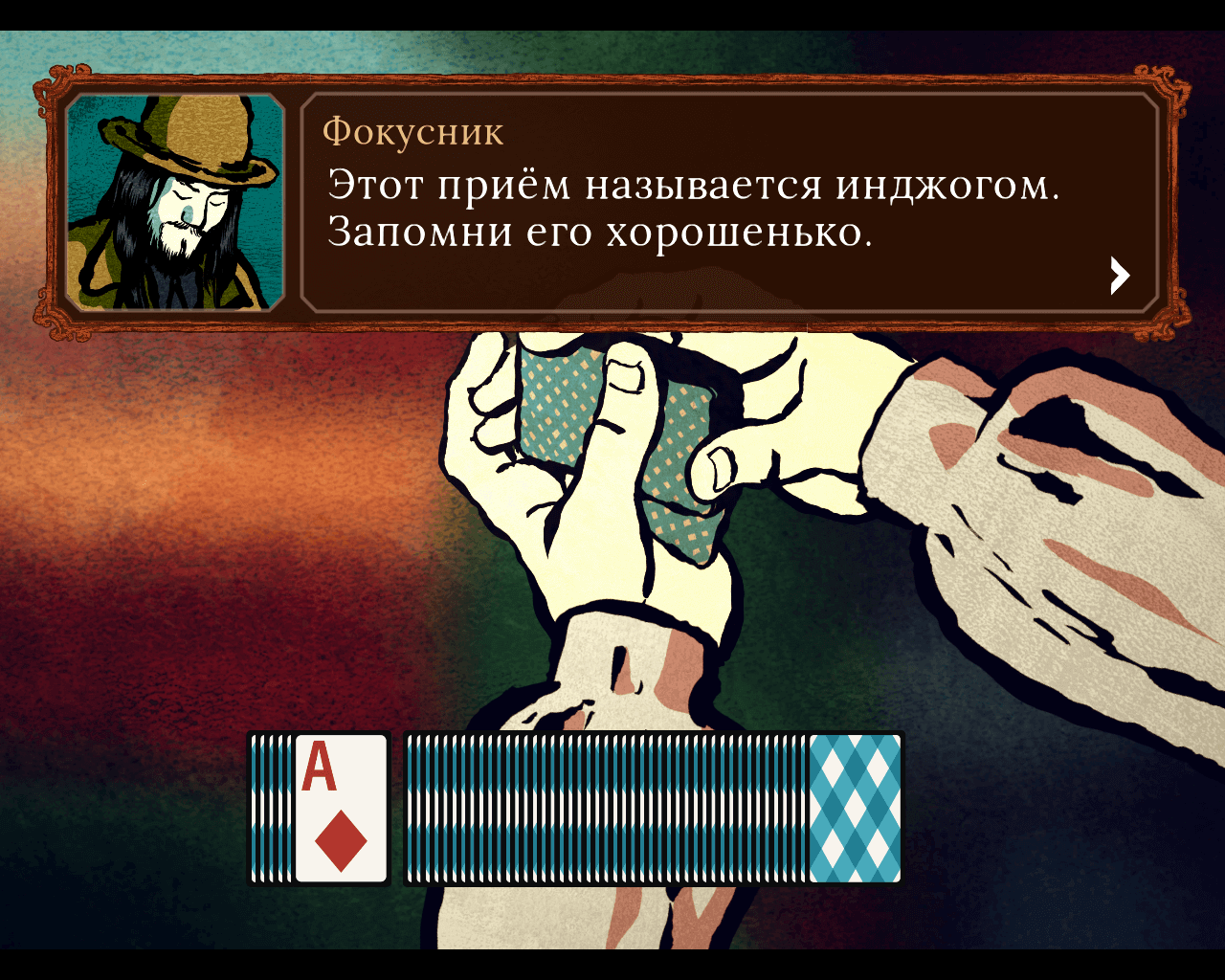
But don't expect any indulgences from Card Shark. No one will let you abuse the game mechanics. If you make a mistake during the next game, you'll lose the money you staked. There's no abuse of quick saves, so I recommend that you learn the card tricks by heart before you start the game. Not the most gentle training takes about 30% of the entire gameplay. Did someone out there laugh about developers putting tutorials in their games that teach you which button to shoot on? Play Card Shark, the tutorial isn't much easier than the basic, not the easiest game.
A card game without cards
The biggest flaw in Card Shark is that the player has nothing to do with the cards themselves. The game has a very strange logic: you manage to cheat - the game is 100% won, and you fail to cheat - 100% loss. Deceived simpletons at the table are not blind, if the trick is not successful or the victim of cheaters is too successfully cheated - your card opponent will go mad, there will be consequences from such a turn: from prison to death. Choose the difficulty level wisely, it will be your stumbling block.
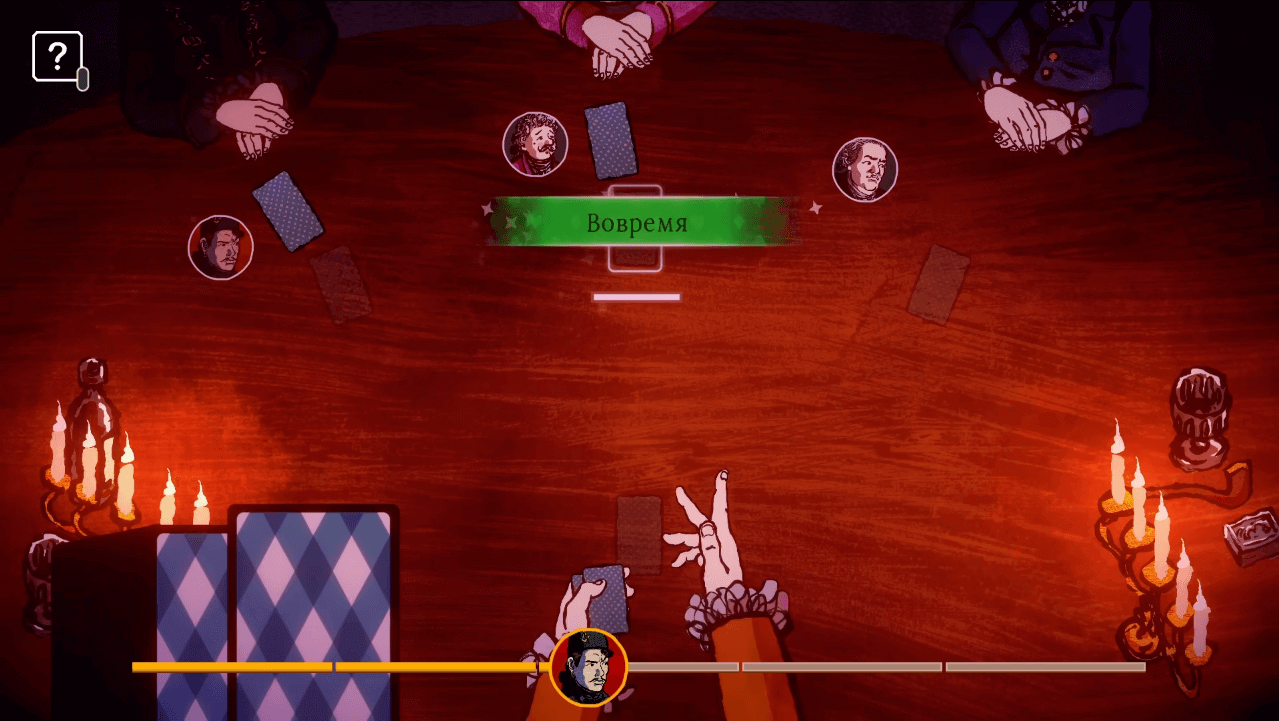
The scale at the bottom of the screen is responsible for the stress of your opponents. I dare to suggest that this mechanic is unnecessary, it only aggravates not the easiest gameplay.
Another logical flaw in Card Shark is the money, which does not motivate you to bet more. Money in Card Shark is analogous to experience points. Yes, money is needed for games, for something else, but you can't buy a saving automatic win with it, or a bailout for a mistake. It's doubly frustrating when you lose not through your own fault, but because the game decided that the mouse and keyboard aren't responsive enough controllers. At some levels the maps played themselves, and I was scored a defeat... so much I burned only in HearthStone...
Blago after defeat in one location, the player is free to test their strength in another. Gameplay experience does not roll in a card Dark Souls, where you have dozens of times to a row to bend the same enemy, and shattered lost in the cards, you can go back to the camp and borrow money - the only connivance in relation to the player.
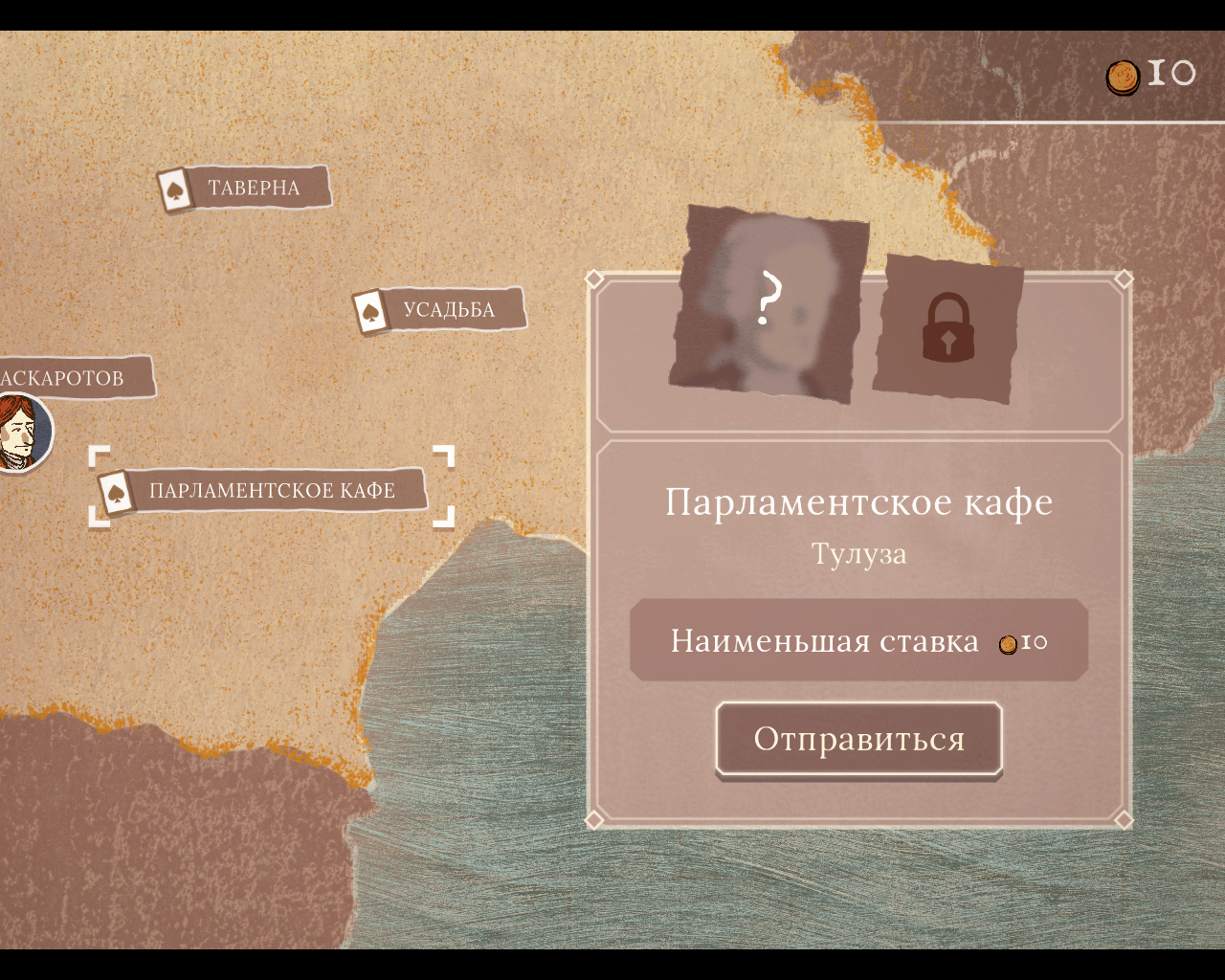
Conclusion
Card Shark is a highly original, picturesque, and entertaining game, not without its problems. On the positive side, it is the only game of its kind with memorable audio-visual content and a challenge. On the downside, the keyboard and mouse controls are abysmal, the lack of immersiveness and in-game resource management, and the difficulty spikes.
